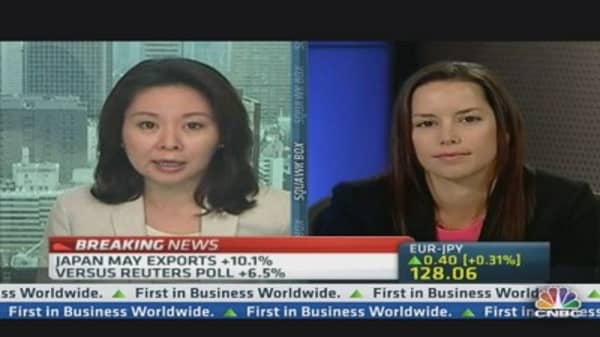Strong export numbers from Japan are a hopeful sign for the success of the country's economic policies but it's still early days to say that the country's export sector has turned a corner, analysts say.
Data on Wednesday showed Japanese exports rose a stronger-than-expected 10.1 percent in May from a year earlier, helped by a weak yen and a pick-up in overseas demand. This was the fastest annual rate in more than two years and compared with a 3.8 percent rise in April and expectations in a Reuters poll of analysts for a 6.5 percent increase.
"The export numbers are a hopeful sign for sure, but it's too early to say the data is bearing the fruit of a weak yen," said Tim Condon, head of research for Asia at ING Financial Markets.
"Korea had strong [export] numbers, China had a weak number, so did Taiwan and Singapore," he said. "The region is chopping around and export growth remains weak, so it would take more than a month of strong Japanese data to make me think that Japan has broken out of that mold," he said.
(Read More: Pimco Sees 60% Chance of Global Recession in 3-5 Years)
Asia,which relies heavily on exports to fuel economic growth, has been hurt by weak demand from recession-hit Europe and a slowdown in China's economy. Data earlier this week, for instance, showed Singapore non-oil domestic exports falling 4.6 percent in May from a year earlier versus a 1 percent fall in April.
"I think at this stage we have to show a bit more caution, and there does seem to be a bit of volatility in the [Japan] numbers," said Laura Fitzsimmons, VP, Futures& Options, JPMorgan Investment Bank, on CNBC Asia's "Squawk Box."
Analysts said that although the data suggested the yen's weakness was starting to benefit exporters it would take time for that weakness to show up in the trade report.





